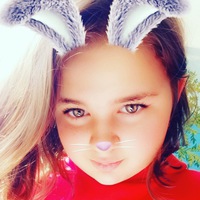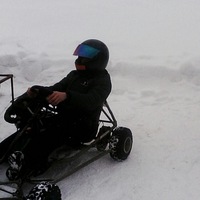
СПАСИТЕПОМОГИТЕ Годы правленияПравители1) 882—915А) Владимир I2) 915—945Б) Владимир Мономах3)
945—60-е гг. X в.В) Игорь4) 60-е гг. X в. — 972Г) Олег5) 972—980Д) Ольга6) 980—1015Е) Святослав7) 1019—1045Ж) Ярополк8) 1113—11253) Ярослав МудрыйДревнерусские терминыОбъяснения терминов1) Мир, вервь 2) Закуп 3) Люди 4) Вира 5) Муж 6) Смерд 7) Рядович 8) Вотчина 9) Холоп, челядин (мн. число — челядь) 10) ГостьA) Земли, которые получали приближенные князя на правах наследственной собственности Б) Община B) Свободный человек мужского пола Г) Человек, попавший в полную зависимость от господина, раб Д) Человек, ставший должником, зависящим от заимодателя Е) Купец Ж) Свободное население Киевской Руси З) Свободный крестьянин И) Человек, заключивший договор (ряд) о выполнении обязанностей в пользу господина К) Штраф в пользу князяБожествоЗанятия, которым покровительствовало божество1) Перун 2) Хорс 3) Даждьбог 4) Стрибог 5) Симаргл 6) МокошьA) Бог ветра и повелитель вихрей Б) Божество, связанное с персидским Симургом — вещей птицей B) Бог грозы, бог-воин, отражающий злые силы; перед ним клялись на оружии Г) Женское божество, помогает при засухе, связано с прядением и ткачеством Д) Бог солнца Е) Бог солнца, сын бога огня, приносит удачу 0
0
 0
0
Ответы на вопрос
 Внимание! Ответы на вопросы дают живые люди. Они могут содержать ошибочную информацию, заблуждения, а также ответы могут быть сгенерированы нейросетями. Будьте внимательны. Если вы уверены, что ответ неверный, нажмите кнопку "Пожаловаться" под ответом.
Внимание! Ответы на вопросы дают живые люди. Они могут содержать ошибочную информацию, заблуждения, а также ответы могут быть сгенерированы нейросетями. Будьте внимательны. Если вы уверены, что ответ неверный, нажмите кнопку "Пожаловаться" под ответом.

Древнерусские термины
Объяснения терминов
1-б
2-д
3-ж
4-к
5-в
6-з
7-и
8-а
9-г
10-е
Божество
Занятия, которым покровительствовало божество
1-в
2-е
3-д
4-а
5-б
6-г
 0
0
 0
0

Years of Rule and Rulers of Ancient Rus
1) 882-915: Vladimir I [[1]] 2) 915-945: Vladimir Monomakh [[2]] 3) 945-60s: Igor [[3]] 4) 60s-X century - 972: Oleg [[4]] 5) 972-980: Olga [[5]] 6) 980-1015: Sviatoslav [[6]] 7) 1019-1045: Yaropolk [[7]] 8) 1113-1125: Yaroslav the Wise [[8]]
Explanation of Ancient Rus Terms
1) Mir: A community of people who were responsible for each other's actions and shared common interests [[9]] 2) Zakup: A person who was responsible for collecting tribute or taxes on behalf of the ruler [[10]] 3) Lyudi: Free people who were not bound to any particular lord or land [[11]] 4) Vira: A person who was bound to a lord and owed military service and other obligations [[12]] 5) Muzh: A free man who owned his own land and had certain rights and responsibilities [[13]] 6) Smerd: A free peasant who worked on his own land but had fewer rights and privileges than a muzh [[14]] 7) Ryadovich: A person who was part of the retinue of a prince or nobleman and served in various capacities [[15]] 8) Votchina: Land that was granted to a loyal follower of the prince and could be passed down through inheritance [[16]] 9) Kholop/Chelyadin: A person who was enslaved or in a state of complete dependence on a lord [[17]] 10) Gost: A guest or visitor who was given certain rights and protections [[18]]
Explanation of Ancient Rus Terms (Continued)
A) Zemli: Lands that were granted to loyal vassals of the prince and could be inherited [[19]] B) Obshchina: A community of peasants who collectively owned and worked the land [[20]] B) Svobodny chelovek: A free man of male gender who was not bound to any lord or land [[21]] G) Chelovek: A person who became completely dependent on a lord and was considered a slave [[22]] D) Chelovek: A person who became a debtor and was dependent on a creditor [[23]] E) Kupets: A merchant who engaged in trade and commerce [[24]] J) Svobodnoe naselenie Kievoi Rusi: The free population of Kievan Rus [[25]] Z) Svobodny krestyanin: A free peasant who owned his own land and was not bound to any lord [[26]] I) Chelovek: A person who entered into a contract (ryad) to perform certain duties for a lord [[27]] K) Shtraf: A fine or penalty paid to the prince [[28]]
Deities and Their Associated Activities
1) Perun: God of thunder and the ruler of storms [[29]] 2) Khors: God of the sun and the celestial bodies [[30]] 3) Dazhdbog: God of giving and abundance [[31]] 4) Stribog: God of the winds and the air [[32]] 5) Simargl: A mythical creature associated with protection and fertility [[33]] 6) Mokosh: Goddess of fertility, weaving, and spinning [[34]]
A) Bog vetra i povelitel vihrey: God of the wind and the ruler of whirlwinds [[35]] B) Bog svyazannyy s persidskim Simurgom: A deity associated with the Persian Simurgh, a mythical bird [[36]] B) Bog grozy: God of thunder and a warrior deity who fought against evil forces; people swore oaths to him on their weapons [[37]] G) Zhenskoe bozhestvo: A female deity associated with helping during droughts and connected to spinning and weaving [[38]] D) Bog solntsa: God of the sun [[39]] E) Bog solntsa, syn boga ognya: God of the sun, son of the god of fire, and bringer of good fortune [[40]]
Please let me know if there's anything else I can help you with!
 0
0
 0
0
Топ вопросов за вчера в категории История
Последние заданные вопросы в категории История
-
Математика
-
Литература
-
Алгебра
-
Русский язык
-
Геометрия
-
Английский язык
-
Химия
-
Физика
-
Биология
-
Другие предметы
-
История
-
Обществознание
-
Окружающий мир
-
География
-
Українська мова
-
Информатика
-
Українська література
-
Қазақ тiлi
-
Экономика
-
Музыка
-
Право
-
Беларуская мова
-
Французский язык
-
Немецкий язык
-
МХК
-
ОБЖ
-
Психология
-
Физкультура и спорт
-
Астрономия
-
Кыргыз тили
-
Оʻzbek tili





















